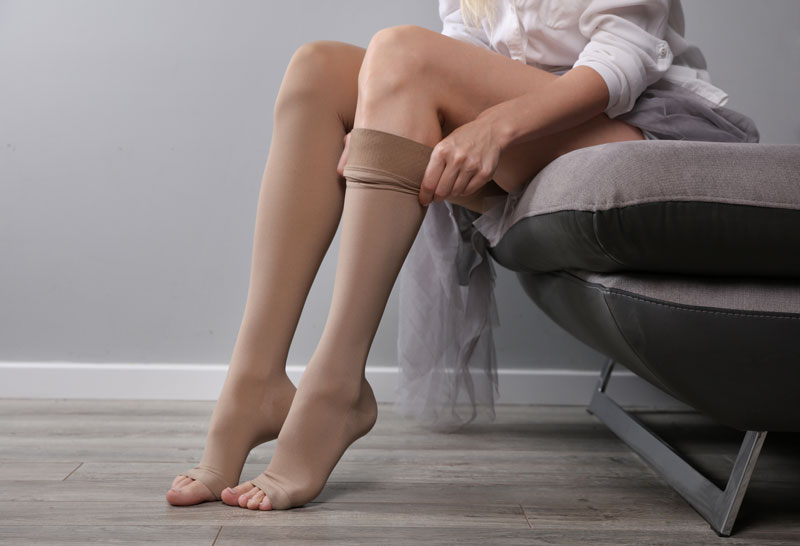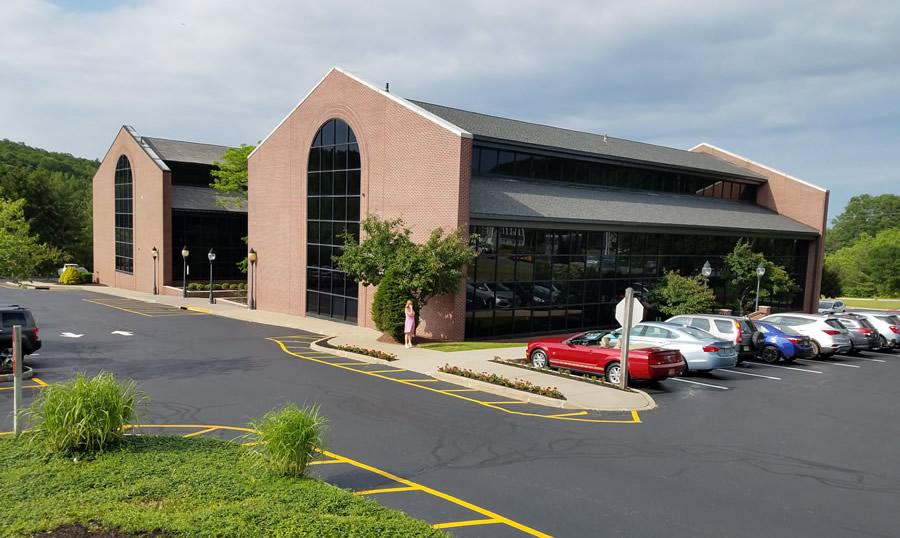The thought of wearing compression stockings may conjure up the image of a grandma with rolled down, knee-high flesh-colored socks. However, compression stockings provide many benefits not only for the “young-at-heart” but for all ages. To truly appreciate the benefits of compression stockings, you must first understand what they do.
How Do Compression Stockings Work?
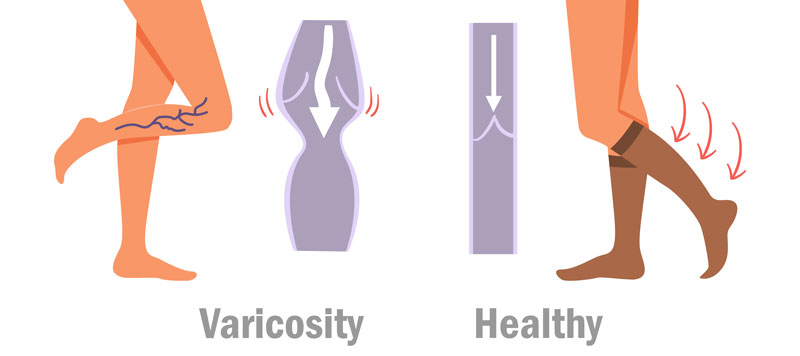
Your heart’s function is to pump blood through the arteries providing your entire body with constant blood flow. This delivers oxygen and other nutrients to your organs. Veins, on the other hand, bring blood back towards the heart. But, working against gravity can prove difficult for veins which is why compression stockings are helpful. If the small valves inside leg veins become less effective, blood may begin pooling in the lower legs, which can cause pain, swelling, and varicose veins.
Compression socks or stockings use pressure to help push the blood out of your legs by squeezing leg tissue and widening the walls of your veins, therefore assisting with circulation. To circumvent the painful and unsightly side effects, consider using compression stockings in the following situations.
1. Sitting All Day at Work
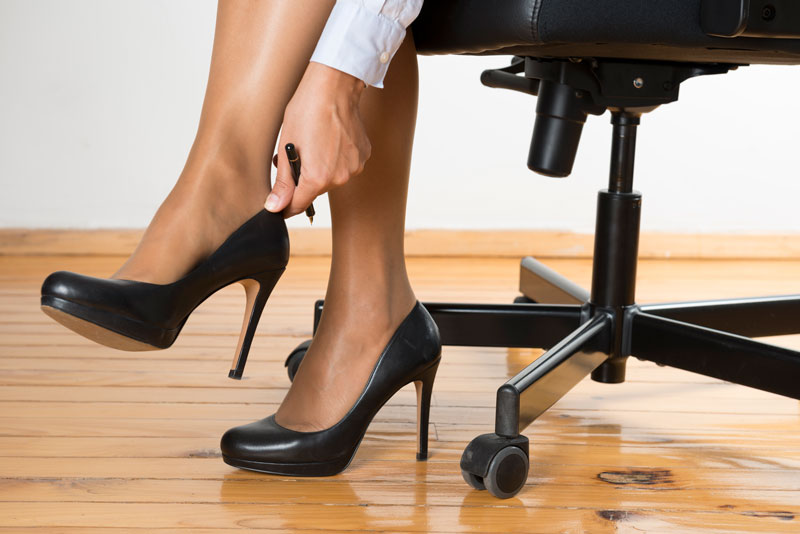
Your calf acts as a pump during movement and allows for blood flow back to your heart. If you’re sitting all day, your calf muscles are moving very little which can cause the pooling of blood in your legs. If you sit at a desk, sit on your couch, or even sit on your riding mower all day long as a landscaper, consider wearing compression stockings while at work.
2. Standing for Long Periods of Time
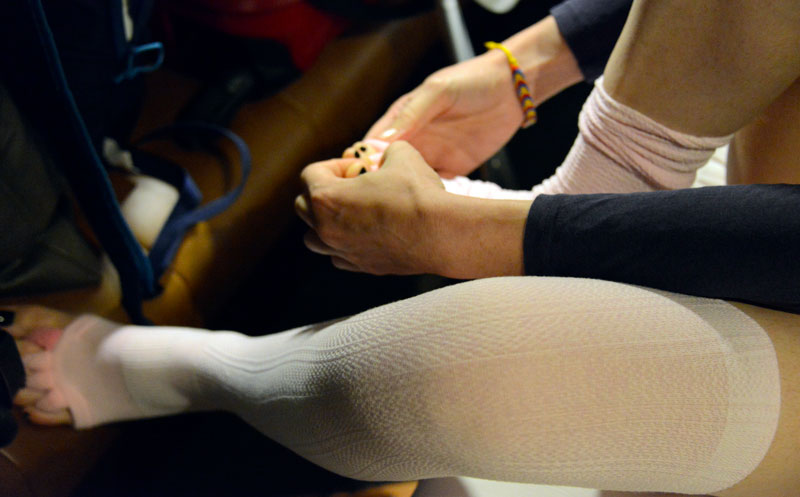
While movement encourages more blood flow by using the calf muscle, standing for long periods of time reduces the effectiveness of utilizing said muscle. When people stand for hours at a time veins constrict making it difficult for blood, to leave the lower half of the body. Circulation may diminish and cause excessive discomfort. Trade workers, retail employees, and hospitality staff who wear compression stockings have more energy and less leg fatigue at the end of their shift.
3. Exercising and Playing Sports
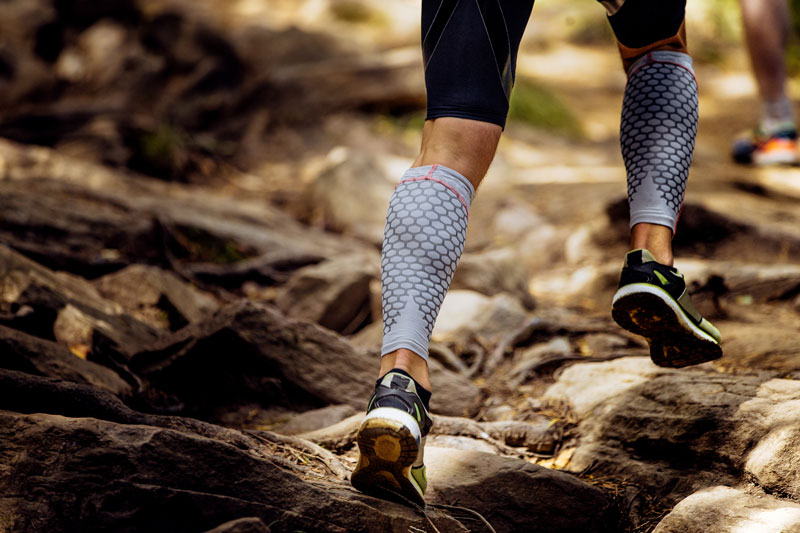
According to several studies, wearing compression socks while exercising and playing sports can reduce leg muscle soreness, as well as lessen the post-recovery period. So, don’t skip out on that next 5k or even leg day at the gym. Utilize compression stockings to train harder, feel stronger, and fight muscle fatigue.
4. Traveling
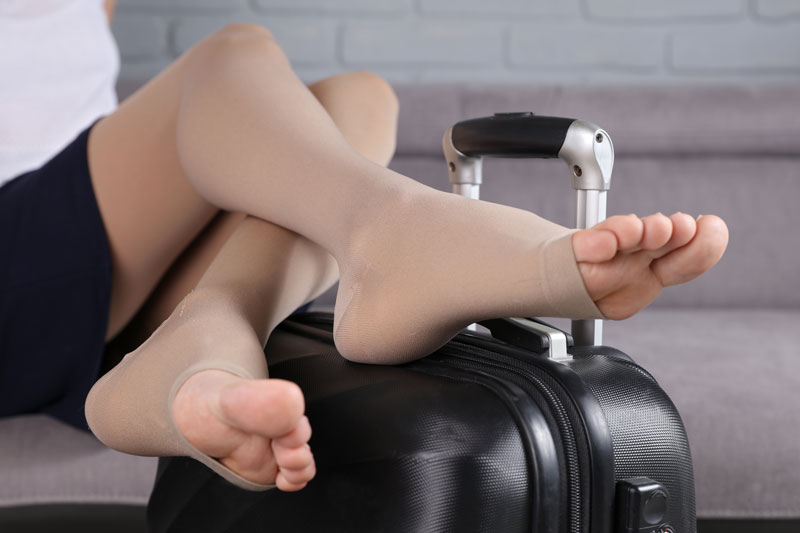
Spending long hours on an airplane or in a car can have the same effect as sitting at a desk all day. Prolonged sitting on a plane increases your risk of developing deep vein thrombosis, also known as blood clots. Wearing compression stockings while traveling can prevent this risk. Your legs will feel ready to go upon landing at your travel destination.
How To Choose Compression Stockings
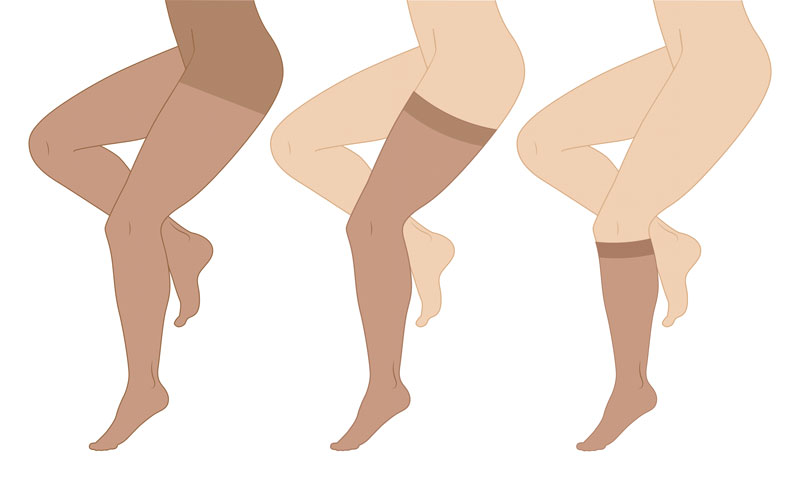
Compression stockings come in different strengths: low pressure, medium-low pressure, and medium pressure. The medium-low and medium pressure stockings are usually reserved for medical reasons, but low-pressure stockings have become quite fashionable and can be found at various retail locations.
When choosing the correct stocking for you, keep in mind that it should fit snugly around your ankle with the pressure tapering off towards the top of the stocking. If you have been experiencing soreness, fatigue or tingling in your legs it is best to consult with a doctor to find compression stockings that will work best for you. These symptoms may need to be addressed with medication or an outpatient procedure in addition to compression socks.
With such a large variety of styles and materials, there’s no longer a reason NOT to wear compression stockings. Whether you are sitting, standing or running around all day, compression stockings will help keep your circulation flowing.
For more information about compression stockings and to find out if your insurance will pay for them, contact NJVVC today!

